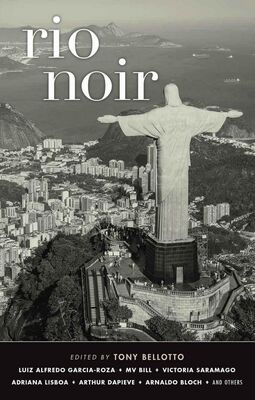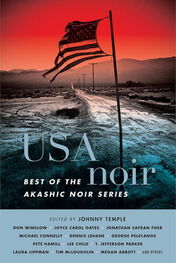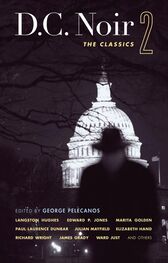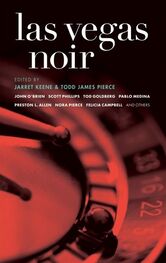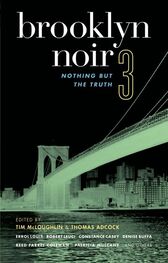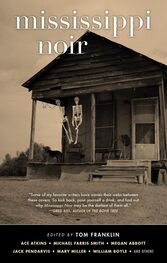When he returned from Europe Georges published Sordid Harvest . It was a smash. It’s a political novel but also a work of suspense. You can’t stop reading it. It’s not shallow or pseudo-intellectual, you know? It has incredible profundity, a power I can’t explain. It’s told from the point of view of a political exile. It’s the best crime novel I’ve ever read. Sordid Harvest , make a note of it. Later you can look for it. It’s really good.
I had to go after Georges. At the market, I mean. He was tall, bony, and had a head of white hair, easy to follow. He moved somewhat aggressively through the crowd, and the funny thing is that no one recognized him. The greatest writer in Brazil buying half a kilo of fish like he was just another guy. I don’t know how long I watched him. I saw when he finished shopping and headed down Ministro toward our building. He entered the lobby. Jesus, beyond living in Copacabana he was my neighbor! Me on the fourth floor; him on the second. Only two floors between me and the baddest dude in Brazilian literature. I almost flipped.
I told you, didn’t I? I’m a writer too. I’ve got a couple of novels put away in a drawer somewhere. I’ve never tried to publish because I feel I’m too young. A writer’s got to be old, you know? Have experience. I like my work, but nobody writes anything of value in their early twenties.
But what I was saying is that I couldn’t get Georges out of my head. I told my mother, and she insisted I call him on the intercom and explain my admiration for him and all the rest. I was against the idea, I didn’t want to be a nuisance. I tried to forget about him.
Copacabana is the world squeezed into a single district. Families, whores, street vendors, drunks, old ladies, nannies, gringos, lottery-ticket sellers, and actors are constantly rubbing elbows on the sidewalks of Portuguese mosaic stones. Some weeks later, I was returning from college when I saw Georges having lunch at Galeto Sat’s, right at the beginning of Barata Ribeiro. I wasn’t planning to eat out (actually, my mother was at home waiting for me for lunch), but I couldn’t resist and went in. I sat at the table next to him, ordered Cornish game hen, potatoes, farofa, and a beer. I ate slowly, watching Georges gnaw on chicken bones and thinking: Man, the greatest Brazilian writer gnawing chicken bones right in front of me .
He had already finished eating when he started a conversation. You may not believe it, but that’s exactly how it happened: he started a conversation with me. “You’re the new people on the fourth floor, aren’t you?” I nodded and replied that he lived on the second. He smiled, even though his eyes remained very hard. Georges had grave, always deep eyes, a characteristic of a talented writer who is ever observing the world around him. He added some complaints about the building — he had lived there for thirty years and the new super, a woman, was a cow. A cow. I wasn’t expecting to hear Georges Fullar call someone a cow. I let him go on talking about water leaks, and the problem of having the subway station so close. In addition to being a talented writer, Georges was old and, you know, old people love to complain about life.
Soon afterward, he invited me to sit with him. He asked my name, and then I made a mistake: I introduced myself and confessed I knew who he was, that I had read Sordid Harvest and that it was my favorite book. Man, Georges’s expression changed immediately, and now it wasn’t only his eyes that were hard. Much later, after we became friends, I understood his reaction better: he didn’t like to talk about his work or his life. That was why he lived alone. He had no maids or servants, no children, not even a pet. Really solitary, Georges. It was only when he drank that he talked and opened up.
“Literature is like a steak,” he once told me, when I asked why he hadn’t written anything since Sordid Harvest . “Would you rather eat a steak or talk about a steak?”
“Eat a steak,” I answered.
“The same is true of literature,” he said. “Talking about literature doesn’t hold the slightest appeal.”
We spoke very little about it; he left no opening. There were nights when we drank wine or whiskey, and then there was a way to initiate a few conversations about literary criticism, methods of writing, theories (Georges detested rules), and literary festivals (he also hated literary festivals — a gathering of people to talk about steak).
From time to time a journalist or literature student would show up looking for an interview, an opinion, or even a photo with him. They were all shooed away. Georges wanted to be forgotten by the world. And little by little the world did forget him.
You must be wondering what we talked about. Georges loved talking about women. Beauty, gentleness, maternal devotion. He was enchanted by that and also by their scent. He was a bit of a pervert, Georges. As well as cultured, obviously. We would usually meet on Tuesdays and Thursdays; he would come down from his apartment and we would order sandwiches from Cervantes. It was one of Georges’s vices: the ham-and-pineapple sandwich from Cervantes. We would eat and gorge on wine. The guy knew a lot about wine. And sacred music. Cinema, cuisine, and sculpture too.
We visited the Drummond statue in those days, there at the end of Copacabana. He pointed to some tourists who were posing beside Drummond. “I’ll bet those sons of bitches have never read a single poem of Carlos’s,” he said. “Life is really shitty, you write and become a statue for a bunch of scumbags to take a picture with.” As we were leaving, some idiot tried to cornhole the statue and guffawed. Shitty, huh?
He never came to our home. I invited him once, he said no, and the subject died there. I also never asked him to autograph my books. Because writers are like that: the more adulated they are, the more they disdain people. He liked me because I didn’t pester him, didn’t ask questions, didn’t push. We met for months without my telling him that I also wrote. Understand, it’s not like I hid anything. I just didn’t think I had the right to talk about it with him.
But there came a night when I told him. It was a Thursday, I think. That was some time ago. Georges and I had killed two bottles of wine and several sandwiches. He was on the balcony of his apartment, sitting in the rocker, and began speaking of the period when he published Sordid Harvest . He told about the launching, the criticism in the media, the prizes, the glamour, and concluded: “The literary scene is so full of shit.” He used a lot of four-letter words, Georges.
That was when I came to feel at ease talking about his book, the impact it had on me, about violence, the honesty I saw in the protagonist’s voice... He interrupted me, agreed, and said that was why he had stopped writing. “I don’t know how to be honest anymore,” he confessed. He himself had experienced everything depicted in Sordid Harvest , which is the reason the book was so authentic and vibrant.
“The writer needs to live what he writes,” he said. “What am I going to write about? A decrepit old man who screws whores and strolls along the beach in Copacabana?”
He was talking about self-fiction, you know? It’s the latest thing. Nowadays almost every book has a writer as protagonist. It goes like this: writers writing about writers who don’t publish; university professors writing about university professors in midlife crises; scriptwriters writing about scriptwriters who work hard and earn little.
“They never stop that mutual masturbation,” Georges said. “Gravediggers, firemen, garbagemen, and cabinet makers should be characters too.”
It was then that I said I was writing a book. Four friends sharing an apartment in Copacabana. The main character was a food lover. And there was a hooker named Cora who was a strong female character. He loved the hooker. And loved the idea. In later meetings we didn’t even need to drink in order to talk about my book. He would show up and ask right away how it was progressing. He never offered to read a single page. He just liked to listen and put in his two cents’ worth.
Читать дальше